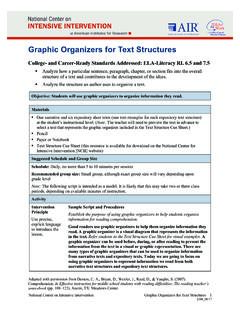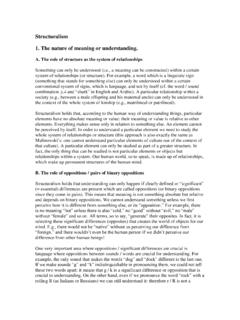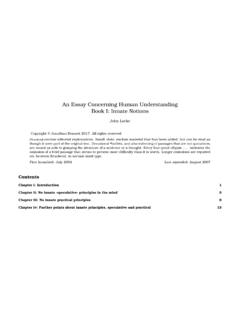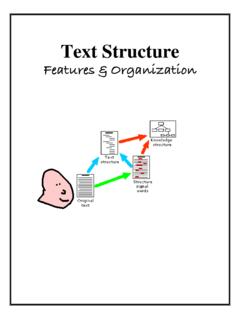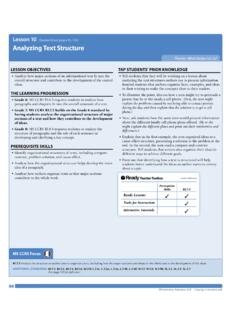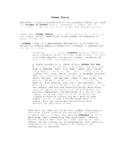Transcription of Hans-Georg Gadamer’s philosophical hermeneutics: Concepts ...
1 META: Research in Hermeneutics, Phenomenology, and Practical Philosophy IV (2) / 2012 286 META: RESEARCH IN HERMENEUTICS, PHENOMENOLOGY, AND PRACTICAL PHILOSOPHY VOL. IV, NO. 2 / DECEMBER 2012: 286-303, ISSN 2067-3655, Hans-Georg Gadamer s philosophical hermeneutics: Concepts of reading, understanding and interpretation Paul Regan University of Central Lancashire Abstract Hans-Georg Gadamer s philosophical hermeneutics is a popular qualitative research interpretive method aiming to explore the meaning of individual experiences in relation to understanding human interpretation.
2 Gadamer identifies that authentic engagement with reading requires awareness of the inter-subjective nature of understanding in order to promote a reflective engagement with the text. The main Concepts of Gadamer s view of reading and understanding are explored in this paper in relation to interpreting text. Concepts such as; inter-subjectivity, Being, authenticity, fore- structure , pre-suppositions, prejudice, temporality and history are all help to enhance health and social science researchers understanding of his theory and its application.
3 Keywords: Gadamer, philosophical hermeneutics, Reading, understanding , Interpretation, Qualitative research Introduction Hans-Georg Gadamer (1900-2002) was an influential German philosopher of the twentieth century, inspiring a variety of scholastic disciplines from aesthetics to theology. In suggesting understanding was interpretation and vice versa, Gadamer identifies language acting as the medium for understanding and a means of sharing the complexities of human experience (Gadamer 2004a).
4 From the ground breaking work of his teacher and friend Martin Heidegger, Gadamer wrote about human subjectivity and developing a critical and dialogical Paul Regan / Hans-Georg Gadamer s philosophical hermeneutics 287 approach to philosophical hermeneutics in his magnus opus Truth and Method (2004a) first published in 1960. The purpose of this paper This paper aims to articulate Gadamer s work in relation to reading, understanding and interpretation for health and social science researchers.
5 Gadamer s key Concepts are of particular concern for qualitative researchers intending to use philosophical hermeneutics for interpreting research participants narrative and findings. The researchers own experience of reading and understanding are important when relating Concepts of pre-supposition (bias, fore- structure ), inter-subjectivity, authenticity (being reflective), temporality (time affecting understanding / emotion), tradition and history (culture) to interpreting the written word.
6 These Concepts are significant because of the central interpretive relationship of the researcher within the qualitative research process. The terms researcher and interpreter are used interchangeably due to the cyclical nature of interpretation. Hermeneutic phenomenology Gadamer s Concepts will be defined to make explicit the working terms in use. Phenomenology underpins the philosophy of Gadamerian philosophical hermeneutics (2004a).
7 Firstly, the word phenomenology comes from the Kantian phenomenon meaning ..that which shows itself in when entities become manifest as the first signification of the word shows itself (Heidegger 2003, 51). First, the semblance of what phenomenology shows conceptualises the word and what it signifies to the interpreter (Heidegger 2003, 51). Second, logos means language (Gadamer 2004b, 59) and relates to Heidegger s discourse and letting.
8 Something be seen through (Heidegger 2003, 56). The vocal signification of a named object connects language as a shared medium of expression (Gadamer 2004a, 408; Gadamer 2004b, 59). Phenomenology focusses on explaining how the primordial thing-in-itself is rooted in the events of life and understanding what is signified by logos through the ..name by which META: Research in Hermeneutics, Phenomenology, and Practical Philosophy IV (2) / 2012 288 something is (Gadamer 2004a, 407).
9 Heidegger and Gadamer s phenomenological inquiry into Being (human existence in the world) therefore enabled a rigorous and critical questioning of something that had been largely taken for granted in philosophy, the primordial understanding of Being (Gadamer 2004a). Hermeneutics is a term derived from the Greek hermeneutikos meaning to interpret (Palmer 1969). Hermeneutics promotes human potential for understanding the meaning of language to expand the infinite possibilities of human thought (Palmer 1969).
10 Developed from theological interpretations and meaning of the Christian Bible hermeneutics aimed to confirm God s authority over the thinking process (Palmer 1969). The early hermeneutics exercised a discriminating power over texts suitability to carry the message of a transcendental wonder (Dilthey) demonstrating, rather than human empowerment, that interpretation with an ideological bias has the capacity to restrict human potential for understanding more fully (Alexander and Numbers 2010).
